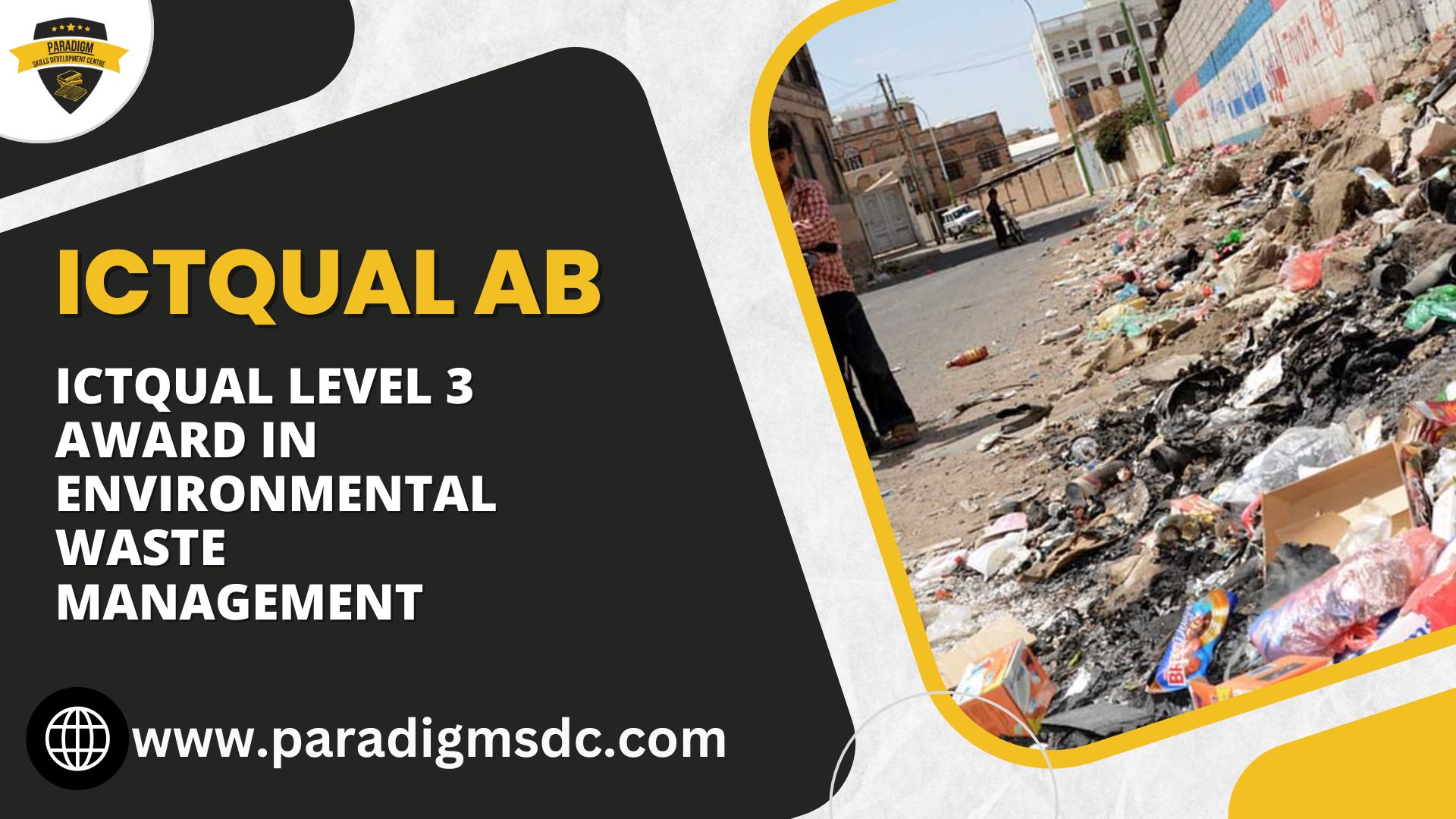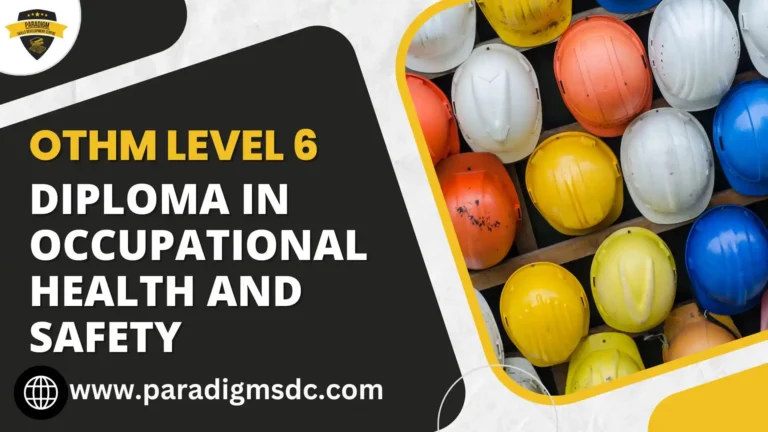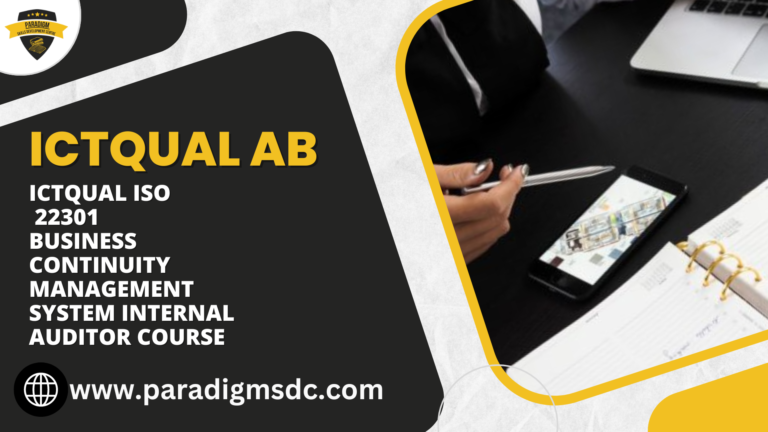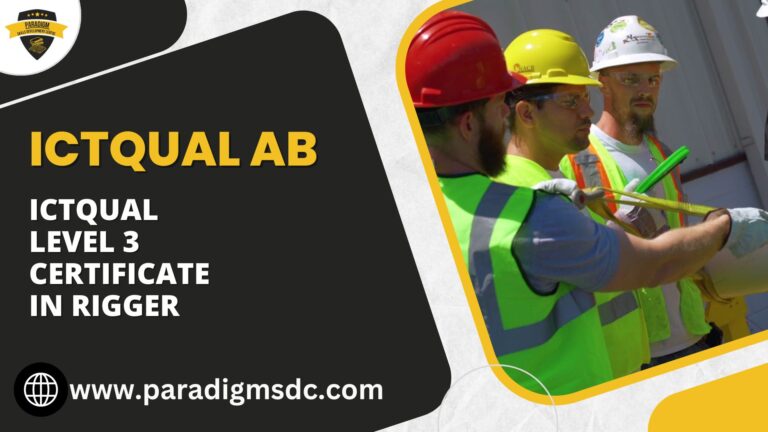Course Introduction
The ICTQual Level 3 Award in Environmental Waste Management is designed to provide participants with comprehensive knowledge and skills in managing environmental waste effectively. This qualification equips learners with the necessary expertise to contribute towards sustainable waste management practices in various industries.
Course Overview
Participants of the ICTQual Level 3 Award in Environmental Waste Management delve into critical aspects of waste management, including regulatory frameworks, waste minimization strategies, recycling processes, and environmental impact assessment. The course emphasizes practical applications and theoretical foundations essential for implementing effective waste management plans.
Course Study Units
- Fundamentals of Waste Management
- Waste Generation and Composition
- Waste Collection and Transportation
- Waste Treatment Technologies
- Waste Disposal Methods
- Recycling and Resource Recovery
- Waste Management Regulations and Compliance
- Environmental Impacts of Waste Management
- Waste Management Planning and Policy Development
Learning Outcomes
Upon completion of the course, participants will:
- Fundamentals of Waste Management:
- Understand the fundamental principles and concepts of waste management, including the waste hierarchy, waste reduction strategies, and sustainable waste management practices.
- Identify the different types of waste and their sources, as well as the importance of proper waste management in minimizing environmental impacts.
- Waste Generation and Composition:
- Analyze the sources, patterns, and composition of waste generation across various sectors and industries.
- Evaluate factors influencing waste generation trends and assess strategies for reducing waste generation at its source.
- Waste Collection and Transportation:
- Explore methods and technologies used for efficient waste collection, segregation, and transportation.
- Assess the effectiveness of different waste collection systems and transportation routes in optimizing resource utilization and minimizing environmental impact.
- Waste Treatment Technologies:
- Examine various waste treatment technologies, including biological, thermal, mechanical, and chemical treatment methods.
- Understand the principles behind each treatment technology and evaluate their suitability for different types of waste streams.
- Waste Disposal Methods:
- Identify and compare different waste disposal methods, such as landfilling, incineration, composting, and anaerobic digestion.
- Assess the environmental, social, and economic implications of each disposal method and explore alternatives for reducing reliance on landfilling and incineration.
- Recycling and Resource Recovery:
- Learn about the recycling process, including collection, sorting, processing, and market distribution of recyclable materials.
- Understand the environmental and economic benefits of recycling and resource recovery initiatives and explore strategies for promoting recycling at the community and industrial levels.
- Waste Management Regulations and Compliance:
- Gain an understanding of waste management regulations, policies, and standards at local, national, and international levels.
- Identify legal requirements, permits, and compliance obligations for waste management activities and assess the implications of non-compliance.
- Environmental Impacts of Waste Management:
- Evaluate the environmental impacts of waste management activities on air quality, water resources, soil health, and biodiversity.
- Identify strategies for mitigating environmental pollution, reducing greenhouse gas emissions, and minimizing the ecological footprint of waste management practices.
- Waste Management Planning and Policy Development:
- Develop skills in waste management planning, policy analysis, and stakeholder engagement.
- Learn how to formulate and implement effective waste management plans, policies, and strategies that align with environmental sustainability goals and regulatory requirements.
Course Benefits
- Enhanced Knowledge: Gain comprehensive knowledge of environmental waste management principles and practices.
- Career Advancement: Improve career prospects in environmental consultancy, waste management roles, and sustainability positions.
- Practical Skills: Acquire practical skills applicable to real-world waste management challenges.
- Environmental Responsibility: Contribute to sustainable development goals by implementing effective waste management strategies.
Who is This Course For?
The ICTQual Level 3 Award in Environmental Waste Management is ideal for:
- Environmental managers and officers seeking to deepen their knowledge.
- Professionals in industries with significant waste management responsibilities.
- Individuals aspiring to enter the field of environmental sustainability and waste management.
Future Progression
Completion of this course opens doors to further qualifications and career opportunities, including:
- Advanced Environmental Management Courses: Progress to higher levels in environmental management education.
- Specialized Waste Management Certifications: Pursue certifications focusing on specific waste streams or advanced waste management techniques.
- Career Advancement: Move into senior roles such as Environmental Compliance Manager or Sustainability Director.
Conclusion
The ICTQual Level 3 Award in Environmental Waste Management is an essential qualification for professionals looking to make a positive impact on environmental sustainability through effective waste management practices. With a strong emphasis on practical skills and theoretical knowledge, this course equips learners to tackle complex environmental challenges and contribute meaningfully to global sustainability efforts.







